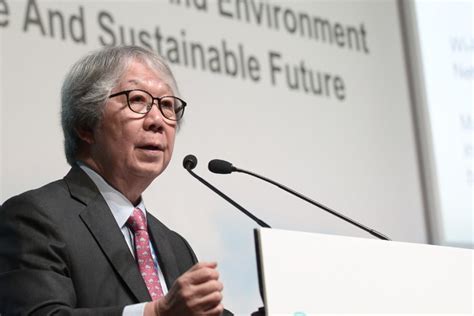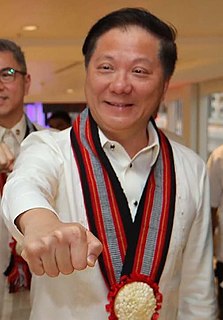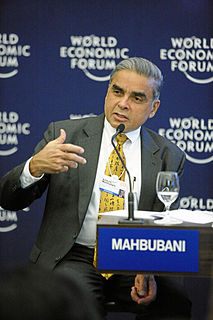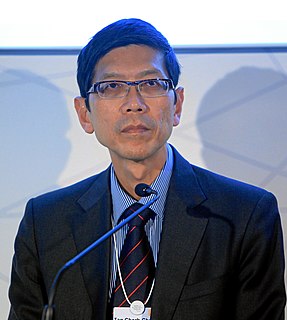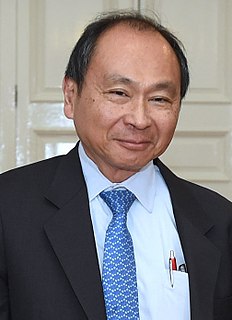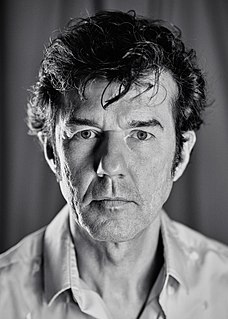A Quote by Tommy Koh
I congratulate NUS for launching a new degree, a bachelor of environmental studies. This is a most timely initiative. One of the biggest challenges facing Asia is to reconcile Asia's rapid economic development with care for the environment.
Related Quotes
This is a timely and relevant initiative. The environmental challenges facing Singapore and the region are becoming more complex. Tackling them will require inter-disciplinary approaches combined with a good understanding of science, economics and governance aspects. The NUS Bachelor of Environment programme will fill a much needed gap in the current framework. NEA is pleased to be a partner to this programme.
The 21st century will be the Asian century. This also means that Asians will be expected to provide greater leadership to solve global challenges, including environmental challenges. Hence, this multi-disciplinary programme from NUS could not be more timely. It meets a pressing need to educate, train and empower leading players in the public, private and civil society sectors in Singapore, Asia and the world.
The environmental issues we face today are complex and span many knowledge domains. This undergraduate degree programme in Environmental Studies will nurture a pool of graduates who are able to think deeply and broadly about these issues, and help develop novel solutions for Singapore, Asia and beyond. I am delighted at this programme for another reason - it is the first undergraduate course that draws on expertise from eight Faculties in NUS, making full use of the comprehensive strengths of our University.
What Asia's postwar economic miracle demonstrates is that
capitalism is a path toward economic development that is potentially
available to all countries. No underdeveloped country in the
Third World is disadvantaged simply because it began the growth
process later than Europe, nor are the established industrial powers
capable of blocking the development of a latecomer, provided
that country plays by the rules of economic liberalism.
I thanked the President [George W. Bush] for the steadfastness and resolve with which he's tackling the very complicated problems in the Middle East and Iraq, as well as the Israel-Palestinian issue.... It's critical for us in Southeast Asia that America does that.... because it affects America's standing in Asia and the world, and also the security environment in Asia because extremists, the jihadists, watch carefully what's happening in the Middle East and take heart, or lose heart, depending on what's happening.
I am not a religious person myself, but I did look for nature. I had spent my first sabbatical in New York City. Looked for something different for the second one. Europe and the U.S. didn't really feel enticing because I knew them too well. So Asia it was. The most beautiful landscapes I had seen in Asia were Sri Lanka and Bali.
The momentum of Asia's economic development is already generating massive pressures for the exploration and exploitation of new sources of energy and the Central Asian region and the Caspian Sea basin are known to contain reserves of natural gas and oil that dwarf those of Kuwait, the Gulf of Mexico, or the North Sea.
Over the past eight years, the United States has worked hard to deepen partnerships across the region and across South-east Asia in particular. We're now a part of the East Asia Summit and we have a strategic partnership with Asean. At the US-Asean Leaders Summit I hosted earlier this year in Sunnylands, California, we agreed to a set of principles that will shape the future peace and prosperity of the region, from promoting innovation and furthering economic integration to addressing transnational challenges like global health security and climate change.
